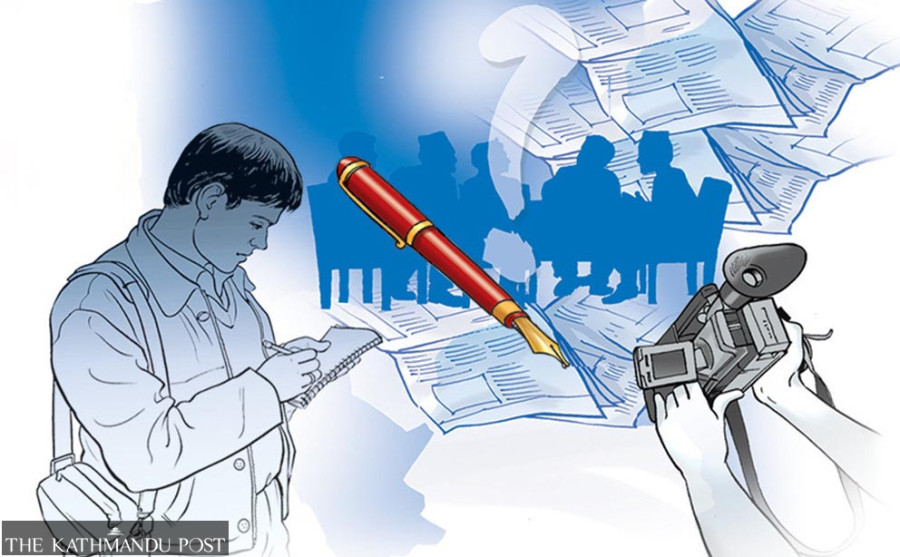Editorial
Not for your eyes
The government tried to curtail the people’s right to know by stamping certain information as confidential.
Efforts to curtail freedom of expression in Nepal continue under various guises. The government’s Committee on Classification of Information headed by Chief Secretary Shanker Das Bairagi, working in complete secrecy, recently classified 87 types of information as “confidential”. This means the public cannot see such material.
The Nepali people only found out about it last Friday when online news portal Independent News Service (INS) broke the story. According to the report, the committee sent its decision to the National Information Commission on January 13, but they didn’t bother to inform the public. Only after the media exposed the sneak decision did we learn that the classification violates the Right to Information Act 2007. Obviously, there was strong public criticism, and the government wisely ditched the plan on Monday.
This is not the first time the government has tried to limit the people's right to information enshrined in Article 27 of the constitution. Even during the premiership of Baburam Bhattarai (August 2011-March 2013), 80 types of information was categorised as confidential, but the action was later annulled by the Supreme Court. In many countries, certain categories of information are classified as “exempted”, which is normal practice. In Nepal, there are five exemptions related to national security, investigation and prosecution of crimes; economic and other interests; intellectual property and professional secrets; harmonious relations among castes and communities; and individual privacy, security, life, property, or health of a person. Similarly, in neighbouring India, 11 information categories are exempt.
What is most alarming about the most recent classification in Nepal is the vagueness. Had the government implemented it, the wings of the media would have been clipped, and the general public deprived of even basic information. As experts and the INS have said, point 55 would have protected corruption as it states that details related to dividend return on foreign investment would be confidential for five years. Similarly, point 59 says that matters submitted to the government must be kept confidential until the decision is made public, preventing citizens from learning about and questioning government decisions. Likewise, point 63 would have kept the public in the dark on the government's plans and policies, tax rates, annual income-expenditure figures and other budget-related issues until the details had been submitted to Parliament.
The question why the high-level committee had to introduce the new classification, and in such a hush-hush manner, remains unanswered. Democracy thrives on transparency and openness. But time and again, the government has tried to keep its bungles under wraps. During the Covid-19 pandemic, as journalists reported on the mishandling of the pandemic and corruption related to the purchase of medical equipment, the then prime minister KP Sharma Oli had warned his party leaders to maintain a safe distance from media persons and not to reveal sensitive information.
Perhaps the most troubling thing about the latest proposed classification is that even the prime minister seemed unaware of the chief secretary-led committee’s activities. The government has done well to heed public criticism and jettison the plan. Yet the incident once again highlights the need for constant vigilance against any kind of overt and covert attempts to curtail free speech.




 18.12°C Kathmandu
18.12°C Kathmandu














